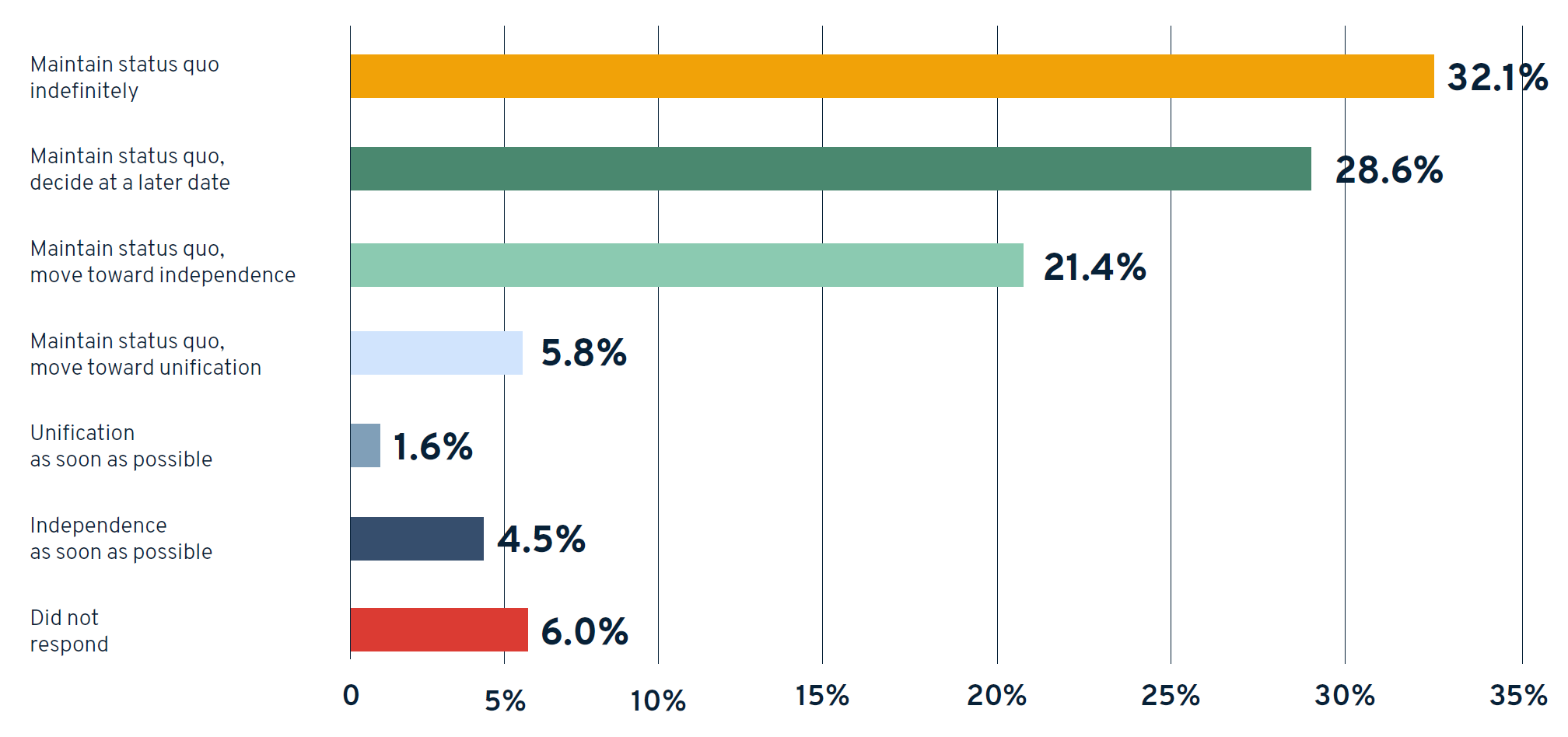2024 Taiwan Presidential and Legislative Elections Outlook

2024 Taiwan Presidential and Legislative Elections Outlook
Taiwan’s presidential and legislative elections scheduled to take place this coming Saturday are the first set of elections in what will be a “year of elections.” These elections mark the ongoing development of a young democracy. Even more importantly, Taiwan is on the frontline of the global strategic competition between the United States and China. The election results will have critical implications for US businesses operating in China and Taiwan.
The outcome of the presidential and legislative elections in Taiwan this weekend will have immediate short-term effects on the level of tension in the Taiwan Strait and on Taiwan’s relations with the US.
- A victory by the ruling Democratic Progressive Party (DPP) most likely will result in a sustained level of tension in the Taiwan Strait. The Chinese Communist Party (CCP) believes that the DPP is actively opposing unification with the People’s Republic of China (PRC). Most polls predict that the DPP will retain the presidency, although with a narrow margin of victory over the Kuomintang (KMT), while the Taiwan People’s Party (TPP) consistently polls third (see graph below).

Note: Taiwan’s Central Election Commission announced that no polls of presidential candidates may be released to the public from 3 January to 13 January, the day of the scheduled elections. The above composite data is compiled from Taiwan Public Opinion Foundation, Formosa, TVBS, RW News, MNews, Sanlih E-Television (SET), ETToday, and United Daily News.
- Since 2016, the CCP has ceased all direct communication with the DPP government but could choose to communicate with a KMT administration or a TPP administration to demonstrate efforts to reduce tensions in the Taiwan Strait.
- While all three major political parties in Taiwan prefer a peaceful status quo in the near term, the CCP believes that the KMT is generally more open to the possibility of Taiwan’s eventual unification with the PRC. This preference for a peaceful status quo generally accords with the views of the Taiwan electorate (see graph below).

Source: Election Study Center, National Chengchi University (Taipei, Taiwan)
The election results will probably not impact US strategic posture in the Taiwan Strait or Indo-Pacific region but will likely affect how Taiwan aligns its strategic and defensive outlook with the US vis-à-vis China. A DPP victory would almost certainly add impetus to Taipei’s efforts to further integrate Taiwan within the US regional security architecture, whereas a KMT administration would likely adopt a more cautious approach in order to avoid antagonizing China.
The results of Taiwan’s concurrent legislative election may also have a significant impact. Taiwan’s legislature exercises considerable political influence through its power to ratify treaties and capacity to mobilize popular opinion for or against the policies of Taiwan’s executive branch. Polls indicate that the KMT may become the majority party in the legislature. A DPP presidency and a KMT-dominated legislature would result in a divided Taiwan government, thereby constraining the DPP government’s policies toward China and the US, especially the DPP administration’s efforts to internationalize the Taiwan issue and further integrate Taiwan into the US regional security framework.
Pamir assesses that, no matter which party wins the presidential and legislative elections this weekend, China is unlikely to change its fundamental principles or views on national unification and claims on Taiwan. By the same token, the election results are also unlikely to produce a radical shift in how the people of Taiwan view themselves and Taiwan’s relationship to China.
- Beijing has repeatedly stressed that Taiwan’s unification with the PRC is one of its core policy interests. PRC President Xi Jinping, in his recent New Year address, stated that Taiwan’s unification with the PRC is a “historical inevitability,” but did not state that China would unify Taiwan by force if necessary or provide a timeline for unification.
- Since Taiwan’s first island-wide democratic elections in 1994, Taiwan’s electorate has increasingly rejected the idea of unifying with the PRC. This view is reinforced by an increasing majority of Taiwan people identifying themselves as Taiwanese only (see graph below).

Source: Election Study Center, National Chengchi University (Taipei, Taiwan)
Even after the election, Beijing will continue to seek to influence narratives around cross-Strait relations. There is a four-month gap between the official release of the Taiwan election results on 19 January and the presidential inauguration on 20 May. Pamir anticipates that, during this four-month period, Beijing will attempt to mobilize the Taiwan business community in China and other groups to shape the content of the president-elect’s inauguration speech in a way that aligns with PRC interests.
Author: John W. Tai, PhD, Senior Advisor, Pamir Strategic Advisory
China’s 5G influence in developing economies
China’s Belt and Road Initiative and its digital counterpart, the Digital Silk Road, threaten to displace US telecom and tech companies in developing economies in Africa, Latin America and the Middle East. How can US operators and network providers stand up to the challenge?